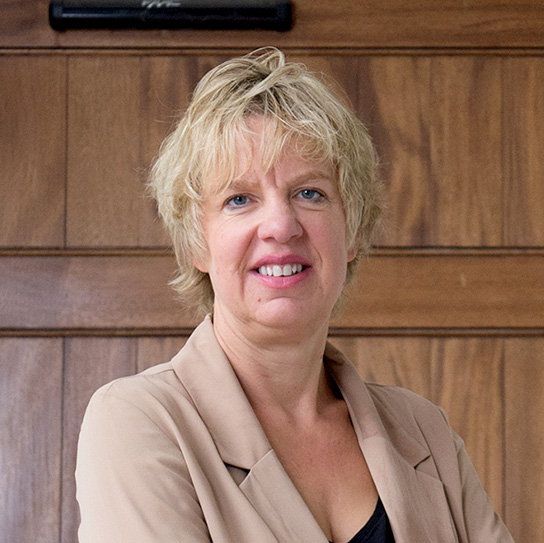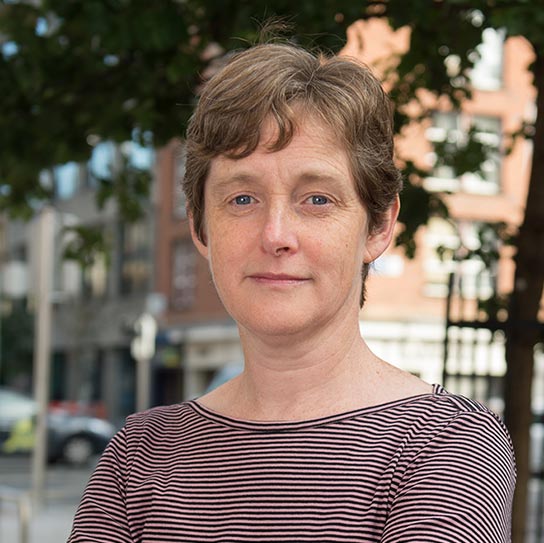Dr Cliona Murphy
Consultant obstetrician gynaecologist

During my medical training abortion really didn't enter the sphere. Like most Irish people I accepted it wasn’t part of our culture. We knew patients might want a termination and we had to say, ‘we can't help you’. I never really questioned that.
That changed once I became a consultant. You see people in very difficult situations and you know that in obstetrics and gynaecology everything isn't black and white.
I recall one patient who had a scan with a devastating diagnosis. Here were a couple who would never have imagined themselves wanting a termination but dealing with a situation where they needed to. I saw the toll it took on them.
During my medical training abortion really didn't enter the sphere. Like most Irish people I accepted it wasn’t part of our culture.
I also met patients looking for what was called a ‘social termination, which has connotations of unnecessary or poorly thought out. And yet when you delve down into a patient’s social circumstances I would not want to walk in their shoes. If you’ve lost a job, lost rent allowance, have small children to look after and are desperately trying to keep your head above water and then an unplanned pregnancy comes into it, it can be the final straw that breaks someone.
I certainly came across people who I felt were suicidal and yet there could be a difference of medical opinion on how suicidal. All this splitting of hairs over how sick somebody needed to be to have a termination. The process was horrendous. And for a doctor there was always the spectre of the law behind your back if you did the wrong thing.
After the law changed in 2013 if a doctor believed a pregnant woman was in imminent danger of death due we could intervene. But another doctor might say you were too cavalier with the diagnosis. That leads to multidisciplinary meetings making sure you have the best available evidence. But there’s a patient who's waiting for this decision who is either very sick or may be about to become sick because of that pregnancy. That flawed process could drag out weeks and you lost the time where somebody might have been able to have a relatively simple termination. They had to terminate at a later stage with all the psychological trauma of that.
I saw how terribly alone and worried the patients were. I felt the law of the country did not treat them the way they should have been treated.
Doctors are conservative people. I’m not a flag waver. But I had a slow realization that when it comes to a campaign like this you have facts being thrown around, many incorrect and divisive. My choice was either say nothing, continue doing my job, cross my fingers and hope for the best. Or to engage. As a professional I realized I could give a voice for women not able to speak up themselves. I could corroborate their accounts and say ‘yes there are situations where you do need to do a termination because the mother is at risk. And that's the truth’. It came down to both my professional and personal conscience.
We must temper public expectations now because changing the law is a big piece of work. What that means on the ground is very different to putting your cross on a ballot box. For healthcare staff it's a big cultural change and for a lot of people it won't be easy. It's one thing agreeing somebody has the right to a termination but it's another to be providing that service. Overall, I believe it will mean better quality of care for patients, that patients are not afraid to discuss options and that they'll be supported.
I also think it’s important we don't silo off treatment of women looking for termination services so it isn't a separate area or building where it's easily targeted by protesters. Women having a termination should be no different to other women attending a gynaecology clinic.
I would say to countries still struggling that every conversation moves things forward, there are small movements in the hearts and minds of people. In my lifetime Irish women had difficulty getting appropriate contraception or would have difficulty getting tubal ligation for example without permission from their husband. This was our recent past. I think people joined the dots and realized to vote No was more of the same. You had grandmothers who didn't like the idea of abortion, but they realized it was something their granddaughters might need, and they were not going to be the ones preventing them.
In the end I think this referendum was won by the ordinary women of Ireland.
Repealed the 8th: Ireland’s Abortion Referendum
from the Center for Reproductive Rights
when

















